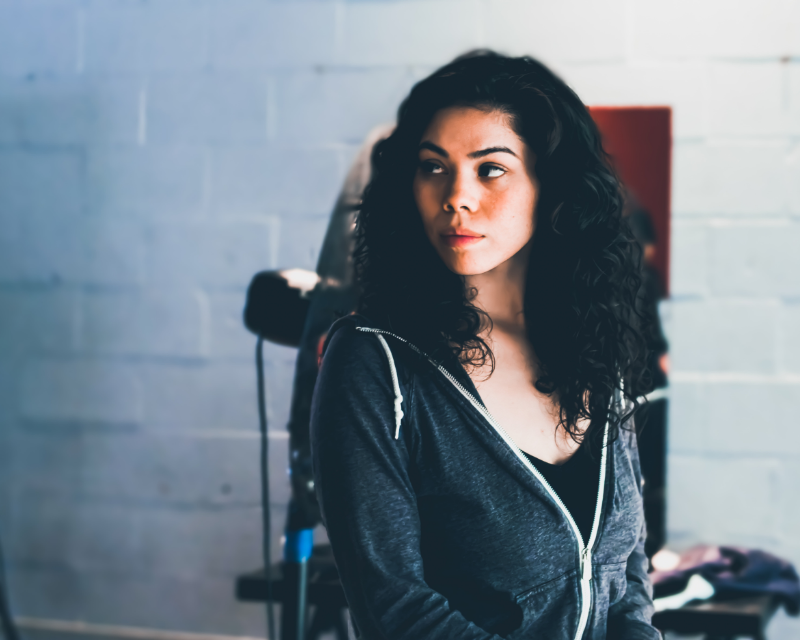
“I was tough. I was a fighter. I didn’t think I needed help because I didn’t see myself as a victim of anything.”
The last time I was sex-trafficked it was January 2010. I was a senior in high school and my trafficker controlled me for nine months of the school year. When I escaped and went to the police, I was blessed to have a detective that understood sex-trafficking. He told me there was one program in my city that would meet my needs, but they only had three beds and might not be able to take me right away, so he gave me the number to the National Human Trafficking Hotline.
The hotline advocate who took my call was exactly what I needed her to be at the time: supportive yet firm. She listened closely to me and pushed back on some of the languages I used to describe myself – language that indicated that I had internalized my victimization and abuse. When I used the label prostitute to describe myself, for example, she said “did you want to work in the sex industry as a little girl?” she reminded me that I was 17 and that according to U.S. law, I was a sex-trafficking victim, not a prostitute. She told me “you can’t use a label you didn’t pick/ Did you pick that label for yourself?” While this may sound a bit harsh, the truth was, it was precisely the message I needed to hear: This isn’t your fault. This isn’t your doing. You are not responsible for this and you deserve to feel safe and treated with dignity and respect. Up until this conversation, I had never viewed myself or my situation in this way. I was the teenager who spit on cops and had multiple gang initiations. I was tough. I was a fighter. I didn’t think I needed help because I didn’t see myself as a victim of anything.
The hotline advocate listened, took me seriously, and treated me like a human being worthy of love, compassion, and kindness. She fought for me in a way that didn’t void but instead supported my inner warrior. It took time to find services because the anti-trafficking field at the time was still so new. The hotline didn’t give up on me though. They found a service provider who would meet my needs. But the advocate went above and beyond this even. While I was waiting to connect with a direct service provider, she connected me to a survivor leader in my area for additional support. Connecting with another survivor for the first time was life-changing. I felt understood. For the first time, I felt like someone really saw me for who I was.
My initial healing journey was a long one. I was dealing with complex PTSD and coping with it in a healthy way was a learning curve. I often felt overwhelmed and confused and many times when I felt like I had no one to talk to – I called the hotline. The hotline was always my “last-ditch effort” – the resource I called when I felt at the end of my rope. And they were always there for me to listen, provide validation and emotional support, and re-orient myself to my support network on the ground. They never over-promised or told me they were going to fix things for me. In fact, the only promise they ever made was that they would try their absolute best. Hearing this was so important because it made me feel like I truly had a safety net. Like many survivors, I was never looking for someone to “save” me and the hotline never attempted to play that role.
Instead, the advocates were the listening ears, the advocates, the service provision landscape navigators who put me in a position to save myself. I will always be grateful for the hotline advocates who helped me when I most needed it. And today, now that I am a victim advocate and well-respected leader in the anti-trafficking field, I rely on the hotline as a professional, knowing that to the extent this is possible, they will do what they can to serve other survivors facing the same battles I once faced.
– Hazel Fasthorse
*Please note the image above is not of the survivor in order to protect survivors’ privacy.